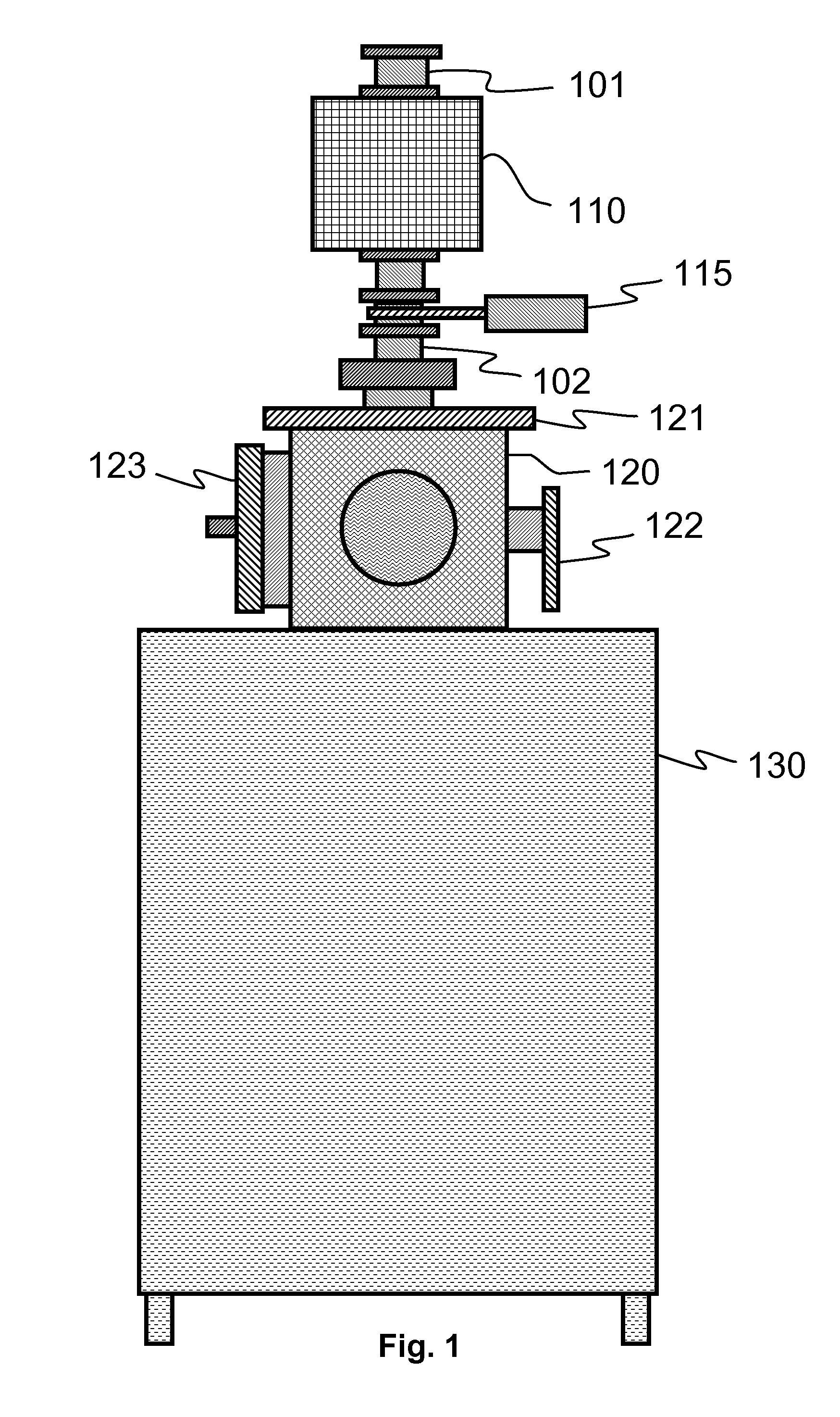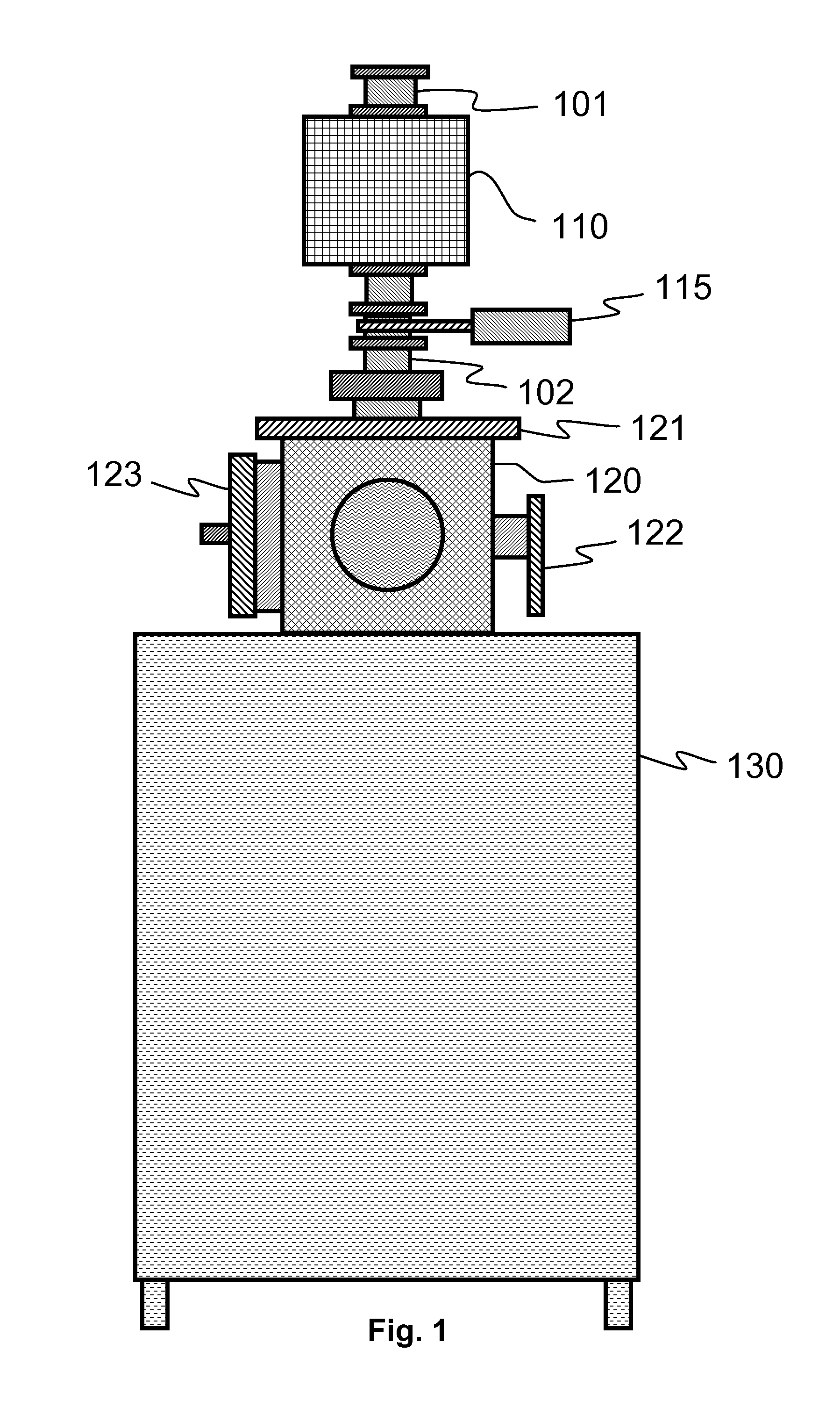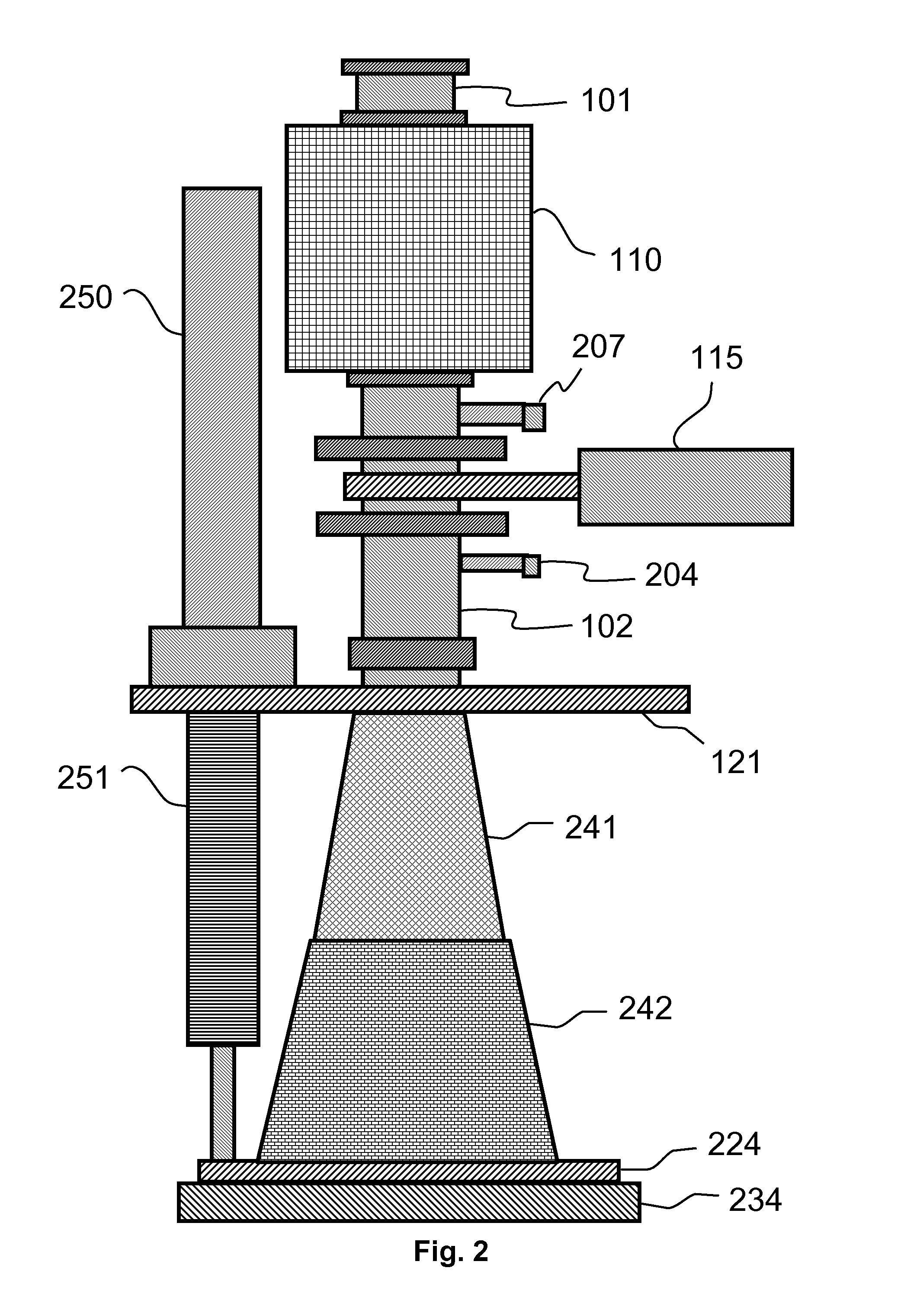Atomic Layer Deposition with Plasma Source
a technology of atomic layer and plasma source, which is applied in the direction of plasma technique, chemical vapor deposition coating, coating, etc., can solve the problems of complex deposition cycle, specific problems, and certain requirements
- Summary
- Abstract
- Description
- Claims
- Application Information
AI Technical Summary
Benefits of technology
Problems solved by technology
Method used
Image
Examples
example 1
[0073]A 100-mm silicon wafer was loaded to the reaction chamber 335 with the dual elevator shown in FIG. 3. The instrumentation of the deposition reactor according to FIG. 6 and the timing diagram of FIG. 7 were used for growing aluminum oxide Al2O3 from trimethyl aluminum TMA and water H2O on the silicon wafer at 200° C. The flow rate of argon gas was 30 sccm through the carrier and purge gas line 101. The TMA pulse length was 0.1 s followed by the 6 s purge. Oxygen gas pulsing valve 414 was opened and 50 sccm of oxygen gas was flowing through the pulsing valve 414 to the remote plasma generator 110. The RF power was increased from 0 W to 2500 W to switch on the plasma and kept at the 2500 W level for 6 s. After that the RF power was lowered from 2500 W to 0 W to switch off the plasma. Next the oxygen gas valve was closed and the system was purged with inert gas for 10 s. The deposition cycle was repeated until a 36-nm Al2O3 thin film was grown. As a result, the 1-sigma non-uniform...
PUM
| Property | Measurement | Unit |
|---|---|---|
| Flow rate | aaaaa | aaaaa |
Abstract
Description
Claims
Application Information
 Login to View More
Login to View More - R&D
- Intellectual Property
- Life Sciences
- Materials
- Tech Scout
- Unparalleled Data Quality
- Higher Quality Content
- 60% Fewer Hallucinations
Browse by: Latest US Patents, China's latest patents, Technical Efficacy Thesaurus, Application Domain, Technology Topic, Popular Technical Reports.
© 2025 PatSnap. All rights reserved.Legal|Privacy policy|Modern Slavery Act Transparency Statement|Sitemap|About US| Contact US: help@patsnap.com



